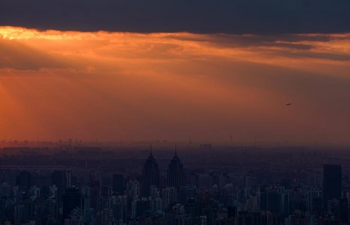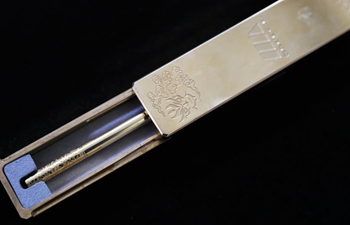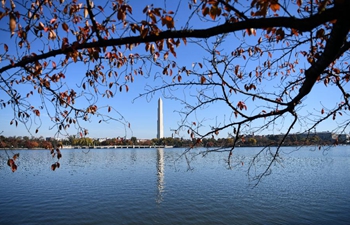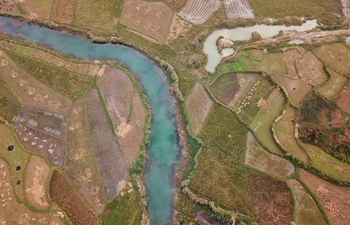LONDON. Nov. 2 (Xinhua) -- Changing weather patterns could see Britain experiencing increasing numbers of tropical nights, a feature still uncommon in the country, the Met Office said in a new study.
Tropical nights are measured using recognised global formulas, and are defined as 24 hour periods when the minimum temperature doesn't fall below 20 degrees Celsius.
Dr Mark McCarthy, head of the Met Office's National Climate Information Center said heat waves are important for health because during tropical nights the human body doesn't get respite from the heat.
McCarthy said: "That is particularly so in large cities where it is further exacerbated by the urban heat island effect where the city will retain more of the heat of the day.
"Of those places where we do see tropical nights most frequently, London is one of those areas where it does occur. It could become a very important index in future."
By documenting temperature and rainfall climate extremes, including periods of warmth, cold and spells of wet or dry weather, the Met Office report has revealed changes in some types of extreme weather.
Comparing different meteorological reference periods shows the hottest day of each year in Britain over the most recent decade (2008-2017) has been on average 0.8 degree Celsius warmer than the hottest day of each year over the period 1961-1990.
At the same time, the lowest temperature of the year has shown an even greater increase, becoming 1.7 degrees Celsius milder between the two periods in Britain.
The Met Office says the changes in weather patterns are consistent with warming driven by human activity.
McCarthy added: "Monthly, seasonal and annual climate data provide a valuable record of the changing climate in the UK. However, these average figures have a tendency to mask extreme weather and climate events. In our latest report we have focused on those measures which record weather extremes which shows how the UK's climate is changing."
McCarthy said minimum overnight temperatures of over 20.0 degree Celsius in Britain are rare currently, and even during this summer this threshold was only exceeded on a few occasions.
"However, with projections in climate suggesting warmer temperatures, it is useful to have this metric in place, so that future changes can be monitored," he added.
The highest daily maximum temperature over the period 1961 to 1990 was an average 26 degrees Celsius, while between 2008 and 2017 it averaged 26.8 degrees.












